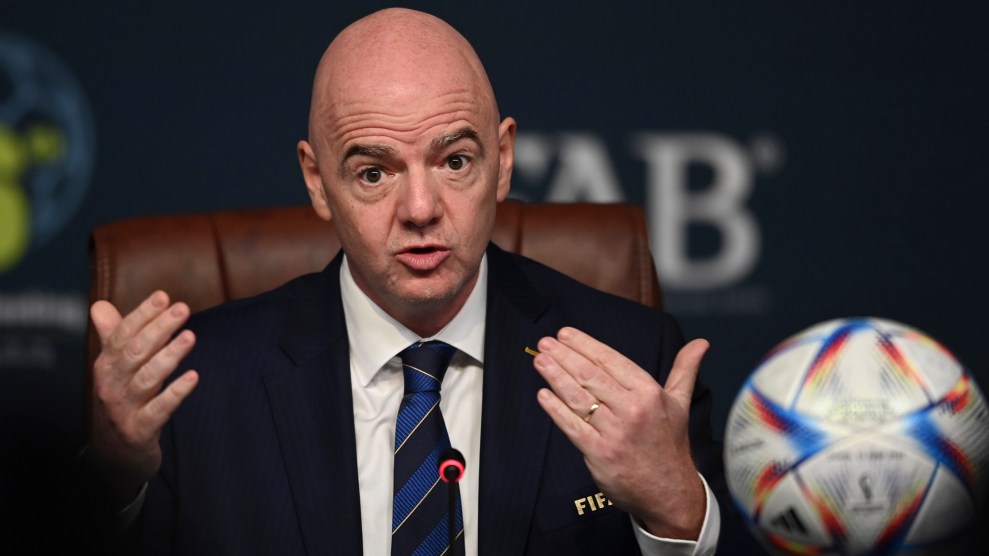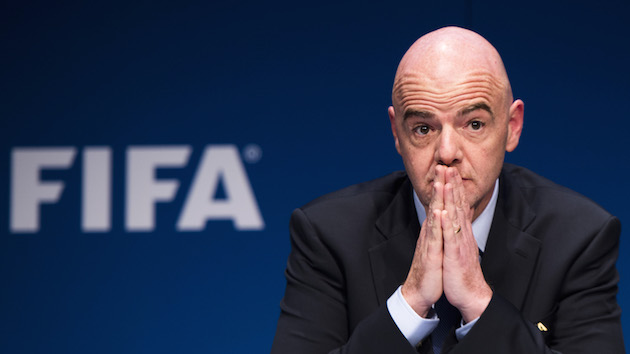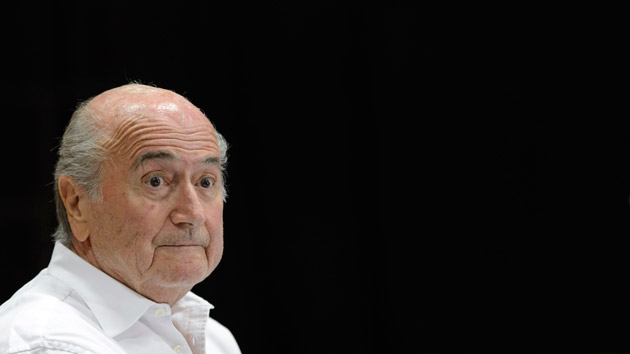
FIFA president and Austin Powers co-star Gianni Infantino.Nikku/Xinhua via ZUMA Press
On Thursday FIFA, the governing body for world soccer, unveiled the 16 host cities for the 2026 men’s World Cup, which will be played in the United States, Mexico, and Canada. Cities had been jockeying for a chance to be selected ever since FIFA awarded the tournament to the three nations in 2018.
There were a couple of particularly notable snubs. Washington, DC, which submitted a joint bid with Baltimore, was rejected. That’s pretty embarrassing, considering that capital cities are almost always part of a World Cup and DC is built for international tourists and corrupt bureaucrats. (Unfortunately for DC, Dan Snyder’s stadium is barely even built for football, which is why the city ended up attaching its name to Baltimore’s bid.) Edmonton’s bid was also rejected, leaving Canada with just two host cities. Why? One reason, according to journalist Grant Wahl, is that FIFA execs just weren’t especially interested in traveling to Alberta.
It is sort of funny, in a grim way, to read about FIFA’s sudden pickiness. After all, the 2022 edition of the tournament is set in Qatar. The Gulf nation, which won the chance to host after a corrupt bidding process, doesn’t have enough hotels to house the influx of visitors, and fans literally won’t even be admitted to the country without a match ticket. It had to build its stadiums from scratch, at the cost of thousands of workers’ lives. It is also, notably, very hot. It’s so hot that the event had to be moved from its traditional summer window to a November/December timeline, disrupting the entire global soccer schedule at every level for several years—all so they can hold the tournament in a country where homosexuality is illegal. What the hell did Edmonton ever do to anyone?
As The Guardian has detailed, American cities went to great lengths to push their names into contention. Missouri legislators voted to suspend sales taxes on World Cup tickets to help Kansas City’s chances. It worked. Florida and Georgia, which did the same, will also be hosting games. Philadelphia has floated turning public parkland into professional-grade practice fields. We’re accustomed to this race to the bottom when it comes to state and local authorities trying to land sporting events (or corporate headquarters), so while it’s not ideal to see officials grovel for the attention of what a senator once called “a mafia-style crime syndicate,” it’s not unexpected.
But to me what was most interesting about this whole process was who didn’t pony up. Neither Chicago nor Montreal—two of the continent’s marquee cities, and the former a host city in 1994—participated in the final rounds of bidding. Quebec’s government complained that the projected cost had doubled in the three years since it had first entered discussions, and would cost some $103 million (Canadian)—just to host a handful of games in a stadium that already exists! Chicago cited FIFA’s opacity about the financial consequences in announcing it was dropping out. “The uncertainty for taxpayers, coupled with FIFA’s inflexibility and unwillingness to negotiate, were clear indications that further pursuit of the bid wasn’t in Chicago’s best interests,” a spokesperson for the city said at the time. Arizona, which likewise dropped out of the bidding, complained about FIFA’s long list of demands, which include that all contracts for the event be written under Swiss law. The message from those cities and states was clear: This just isn’t going to be worth it.
As we get closer to the tournament (we’ve still got another one to play first), expect to see the usual trickle of stories touting the financial benefits of hosting a major international event. But it’s not just economists and community members speaking out about the hidden costs of hosting major sporting events this time around; it’s all the other cities who did the math and decided that the best way to watch this World Cup was on the couch.


















